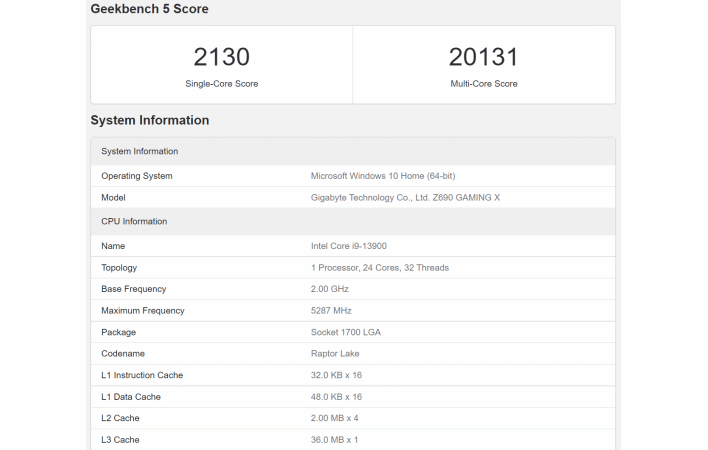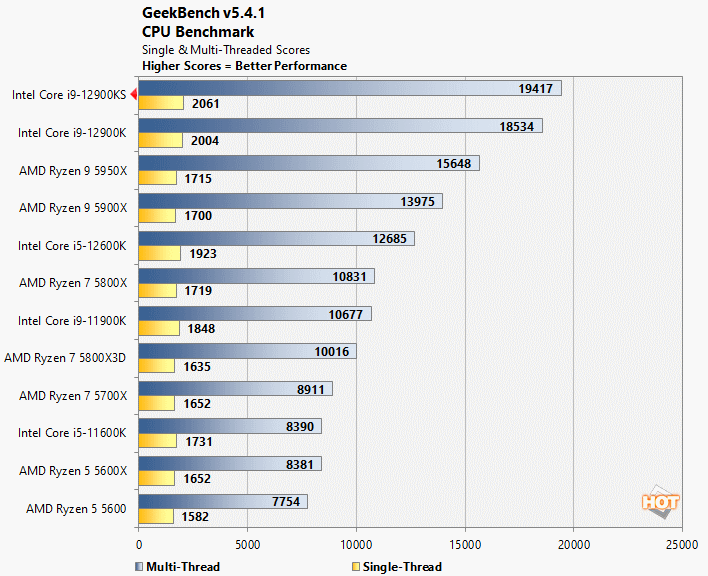Intel Core i9-13900 Raptor Lake CPU Boosts To A Blistering 5.6GHz In Benchmark Leak
When Intel releases new desktop processors, we usually see overclockable CPUs with a -K suffix, low-power CPUs with a -T suffix, and suffix-less models that are the "standard" series. These chips would have gotten an "S" suffix in generations past, indicating that they usually have TDP ratings around 65 watts.
65 watts is a modest allotment compared to the peak power draw of Intel's fastest desktop CPUs. With modern manufacturing processes though, it by no means indicates a slow processor. That much is clear from examining the Geekbench result that went up today featuring a Core i9-13900.

While these "S" processors nominally have 65W power limits, many desktop motherboards will actually unlock the power limit just as if they were "K"-series chips. That means setting PL1, the nominal power limit, equal to PL2, which is the short period power limit. Normally, these chips should only run at that power level very briefly before clocking down to stay within PL1, but enthusiast motherboards often raise this limit.
We suspect that's the case with this benchmark, as the Core i9-13900's results are phenomenal. If we compare the leaked Raptor Lake chip's result with our Core i9-12900 results from our Intel NUC 12 Extreme "Dragon Canyon" review, we see an uplift of 19% in single-threaded performance, and a whopping 54% in multi-threaded performance—although keep in mind that this CPU has fully eight more cores than the previous-gen part.

Much has been written about the power consumption of Intel's recent processors. The 11th-generation Core family was power-thirsty, and the unlocked processors in the 12th-generation series even more so. To be fair though, outside of those unlocked chips, the 12th-gen family is actually quite efficient.
Many folks who may have bought a K-series chip in previous generations could be considering a suffix-less SKU this time around. The aim could be to get a processor that's easier to cool while staying quiet without sacrificing too much performance. We'll see how efficient Intel's 13th-gen truly is sooner or later.


